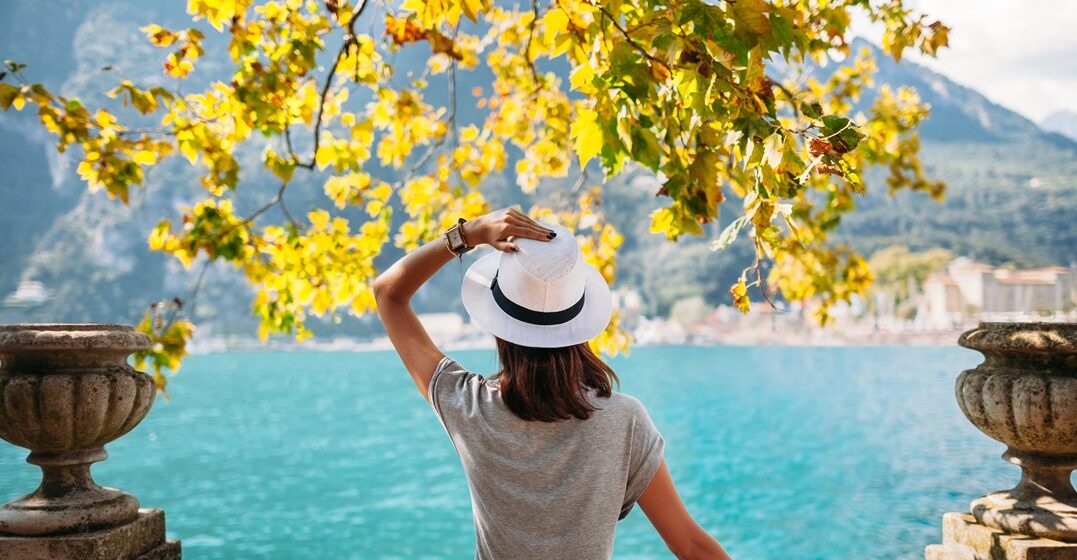Updated on March 21, 2025

How to talk about the seasons of the year in Italian

La primavera (spring), l’estate (summer), l’autunno (autumn/fall) and l’inverno (winter) are what you’d call the four seasons in Italian. Whether you’re engaging in small talk, discussing travel plans or inquiring about Italian cultural traditions, these terms will surely prove handy. In Italy, the seasons are inextricably linked to the traditions and activities that occur at different times throughout the year. So, how do the people living in the various regions of Italy experience the seasons? From the snowy mountains and mild summers in the North to the (almost) year-long beach weather in the South, Italy’s seasonal diversity mirrors and informs its cultural and environmental diversity. Let’s dive in!
- Basic introduction to the Italian names for the seasons
- ‘La primavera’ (Spring)
- ‘L’estate’ (Summer)
- ‘L’autunno’ (Autumn/Fall)
- ‘L’inverno’ (Winter)
- FAQs
Basic introduction to the Italian names for the seasons
Below are the names of the seasons in Italian, along with some helpful tips on how to pronounce them correctly.
| English | Italian | Pronunciation | IPA |
| spring | la primavera | la pree-mah-veh-rah | /ˌpri.maˈve.ra/ |
| summer | l’estate | le-stah-teh | /eˈsta.te/ |
| autumn/fall | l’autunno | l-ow-toon-noh | /auˈtun.no/ |
| winter | l’inverno | leen-vehr-noh | /inˈvɛr.no/ |
‘La primavera’ (Spring)
La primavera is a time to celebrate renewal and coming back to life. Temperatures along Italy’s southern coastlines rise to 20°C (68°F) as early as March, while areas closer to the Alps might stay chilly until early May.
Spring vocabulary
| English | Italian |
| spring cleaning | le pulizie di primavera (pl.) |
| flowers | i fiori (pl.) |
| bud | il germoglio |
| garden | il giardino |
| allergies | le allergie (pl.) |
| to bloom | fiorire |
| to grow | crescere |
| to plant | piantare |
- In primavera i fiori iniziano a fiorire. (In spring, the flowers start to bloom.)
- Adoro piantare nuovi fiori nel mio giardino. (I love planting new flowers in my garden.)
- Il sole splende e l’aria è fresca. (The sun is shining, and the air is fresh.)
Notable events and festivities in spring
Major spring events celebrated across Italy include Father’s Day (la Festa di San Giuseppe), the Infiorata festival, la Festa della Liberazione and Pasqua (Easter).
In addition to the national holidays, Italians celebrate several regional feasts and parades. In Florence, for example, the Scoppio del Carro (Explosion of the Cart) marks Easter Sunday, and it’s quite impressive!
‘L’estate’ (Summer)
From the Latin aestas, meaning “heat,” the Italian word for summer immediately recalls open-air concerts, film festivals and sagre (town festivals, usually involving food). Most Italians also take generous vacation time around August and head to the seaside or countryside to relax.
Summer vocabulary
| English | Italian |
| beach | la spiaggia |
| vacation | la vacanza |
| ice cream | il gelato |
| sea | il mare |
| to relax | rilassarsi |
| sand | la sabbia |
| humidity | l’umidità |
| sailing boat | la barca a vela |
- In estate adoro nuotare nel mare. (In summer, I love swimming in the sea.)
- Prendo il sole sulla spiaggia ogni mattina. (I sunbathe on the beach every morning.)
- Mangiamo un gelato per rinfrescarci. (We eat ice cream to cool off.)

Learn Italian with Lingoda
How it works

Notable events and festivities in summer
Some of the most notable summer festivities include Ferragosto, the opera festival held in the Arena di Verona, the Festa del Redentore in Venice, and the spectacular Palio di Siena, a horse race with a history that dates back to the Middle Ages.

Learn Italian with Lingoda
How it works

‘L’autunno’ (Autumn/Fall)
L’autunno is the season of culinary celebrations. Grape and olive harvests dominate the countryside, and the whole season revolves around food-based traditions. From North to South, Italy’s landscapes shift in color thanks to stunning fall foliage.
Autumn vocabulary
| English | Italian |
| leaves | le foglie (pl.) |
| to harvest | raccogliere |
| chestnuts | le castagne (pl.) |
| grapes | l’uva (pl.) |
| rainy | piovoso |
| pumpkin | la zucca |
| cozy | accogliente |
| foggy | nebbioso |
- In autunno le foglie diventano gialle. (In autumn, the leaves turn yellow.)
- Adoro raccogliere castagne. (I love collecting chestnuts.)
- Le mattine autunnali sono nebbiose. (Autumn mornings are foggy.)
Notable events and festivities in autumn
La Festa dell’Uva in Chianti and the Festa dell’Olio for olive oil are major events on the autumn calendar. In Piedmont, la Fiera del Tartufo Bianco honors the white truffle, while other regions hold castagnate (chestnut roasting festivals). In Venice, the Regata Storica boat race welcomes autumn with lively pageantry.
‘L’inverno’ (Winter)
Italian winter is both festive and cozy, blending time-honored traditions, holiday cheer and an ever-present assortment of seasonal treats and specialties.
Winter vocabulary
| English | Italian |
| snow | la neve |
| to ski | sciare |
| to freeze | gelare |
| fireplace | il camino |
| blanket | la coperta |
| hot chocolate | la cioccolata calda |
| frost | il gelo |
| Christmas | il Natale |
- In inverno nevica spesso in montagna. (In winter, it often snows in the mountains.)
- Mi piace bere cioccolata calda davanti al camino. (I enjoy drinking hot chocolate by the fireplace.)
- Il lago è coperto di ghiaccio. (The lake is covered with ice.)
Notable events and festivities in winter
Winter begins with Natale (Christmas) celebrations, traditional performances of presepi viventi (live nativity scenes) and lively markets taking over small towns all across Italy. The markets of Trentino-Alto Adige stand out for their magical atmosphere.
In February, winter’s end is marked by the Carnevale di Venezia, a festival famous for its elaborate masks and grand parades.
How do you pronounce “seasons” in Italian?
The word for “seasons” in Italian is stagioni, and it’s pronounced “stah-jee-oh-nee.”
What season is l’autunno?
L’autunno is autumn or fall in Italian.
How do you say all the months in Italian?
The months in Italian, in order of their occurrence in the year, are gennaio, febbraio, marzo, aprile, maggio, giugno, luglio, agosto, settembre, ottobre, novembre and dicembre.
‘Ogni stagione ha la sua bellezza’ (Every season has its beauty)
Learning vocabulary about the seasons in Italian doesn’t only open the door to new cultural discoveries; it can also prove quite useful for everyday conversations. Knowing how to discuss seasons and related activities can help you engage in meaningful exchanges with locals.
If you feel inspired to improve your Italian language skills, consider Lingoda. With structured guidance and a gentle push to start speaking from Day One, Lingoda’s interactive Italian courses offer a challenge that’s tailored to your level. Join now to deepen your Italian knowledge, practice with native speakers and make real progress in your language journey!

Learn Italian with Lingoda
How it works














